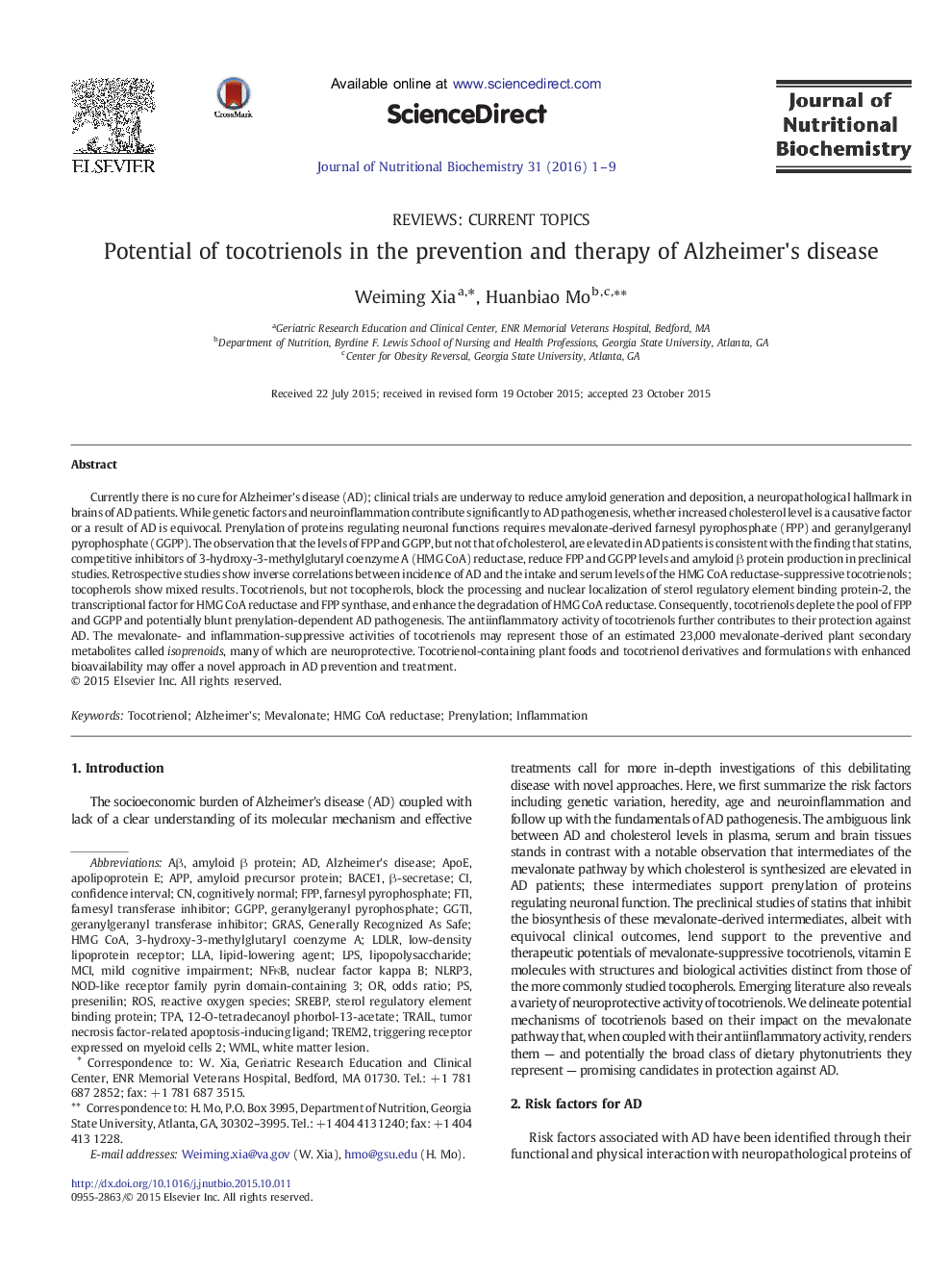| Article ID | Journal | Published Year | Pages | File Type |
|---|---|---|---|---|
| 1989545 | The Journal of Nutritional Biochemistry | 2016 | 9 Pages |
Currently there is no cure for Alzheimer's disease (AD); clinical trials are underway to reduce amyloid generation and deposition, a neuropathological hallmark in brains of AD patients. While genetic factors and neuroinflammation contribute significantly to AD pathogenesis, whether increased cholesterol level is a causative factor or a result of AD is equivocal. Prenylation of proteins regulating neuronal functions requires mevalonate-derived farnesyl pyrophosphate (FPP) and geranylgeranyl pyrophosphate (GGPP). The observation that the levels of FPP and GGPP, but not that of cholesterol, are elevated in AD patients is consistent with the finding that statins, competitive inhibitors of 3-hydroxy-3-methylglutaryl coenzyme A (HMG CoA) reductase, reduce FPP and GGPP levels and amyloid β protein production in preclinical studies. Retrospective studies show inverse correlations between incidence of AD and the intake and serum levels of the HMG CoA reductase-suppressive tocotrienols; tocopherols show mixed results. Tocotrienols, but not tocopherols, block the processing and nuclear localization of sterol regulatory element binding protein-2, the transcriptional factor for HMG CoA reductase and FPP synthase, and enhance the degradation of HMG CoA reductase. Consequently, tocotrienols deplete the pool of FPP and GGPP and potentially blunt prenylation-dependent AD pathogenesis. The antiinflammatory activity of tocotrienols further contributes to their protection against AD. The mevalonate- and inflammation-suppressive activities of tocotrienols may represent those of an estimated 23,000 mevalonate-derived plant secondary metabolites called isoprenoids, many of which are neuroprotective. Tocotrienol-containing plant foods and tocotrienol derivatives and formulations with enhanced bioavailability may offer a novel approach in AD prevention and treatment.
